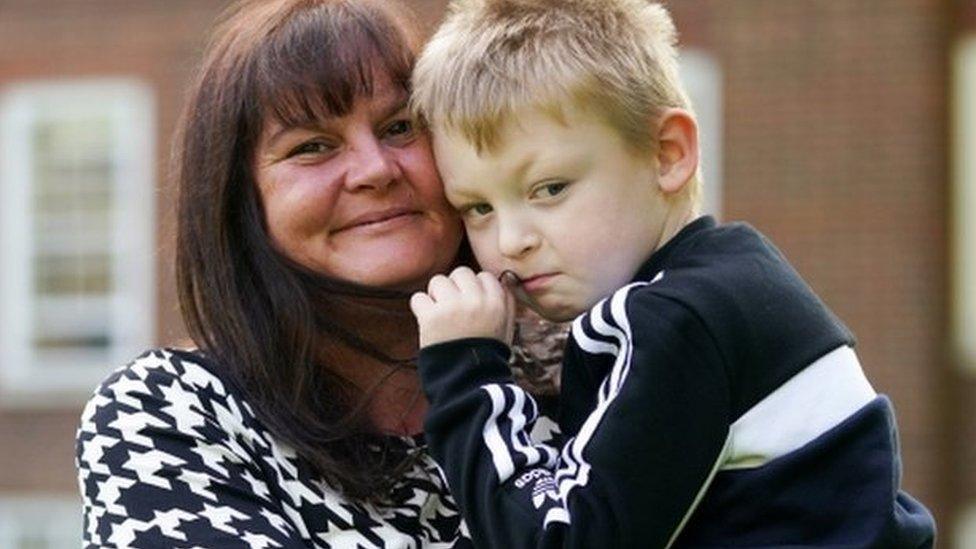Walleys Quarry: Supreme Court asked to rule in landfill legal battle
- Published
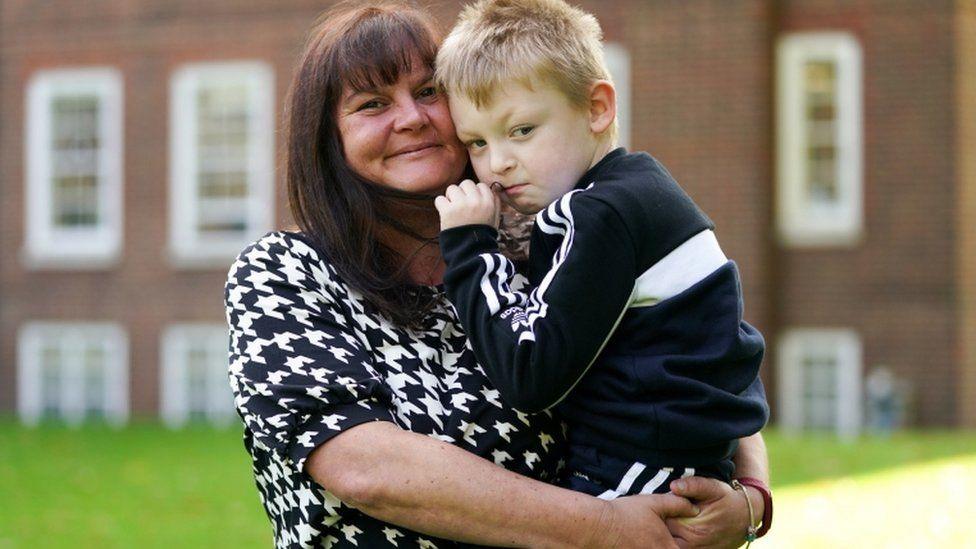
Mathew Richards lives about a quarter of a mile from Walleys Quarry with his mother Rebecca Currie
Lawyers for a boy with lung problems who claim his life is being shortened by noxious landfill site gas have asked the Supreme Court to decide their case.
The Environment Agency (EA) was ordered by a High Court judge to enforce more reductions in hydrogen sulphide levels at Walleys Quarry, Staffordshire.
But the Court of Appeal overturned the decision after the EA challenged it.
Solicitors for Mathew Richards and his mum Rebecca Currie say the five-year-old's human rights need protecting.
"I hope the Supreme Court will recognise how important this issue is, not just for Mathew but for my community and for anyone concerned about pollution," she said.
The UK's highest court has been asked to consider their application for permission to appeal within seven days.
It comes after two appeal judges decided in December the judge at the High Court went "beyond the role of the court" in his ruling about actions the EA must take and in what timeframe. Mathew's lawyers say his human rights are being breached and the appeal court ruling should be reversed.
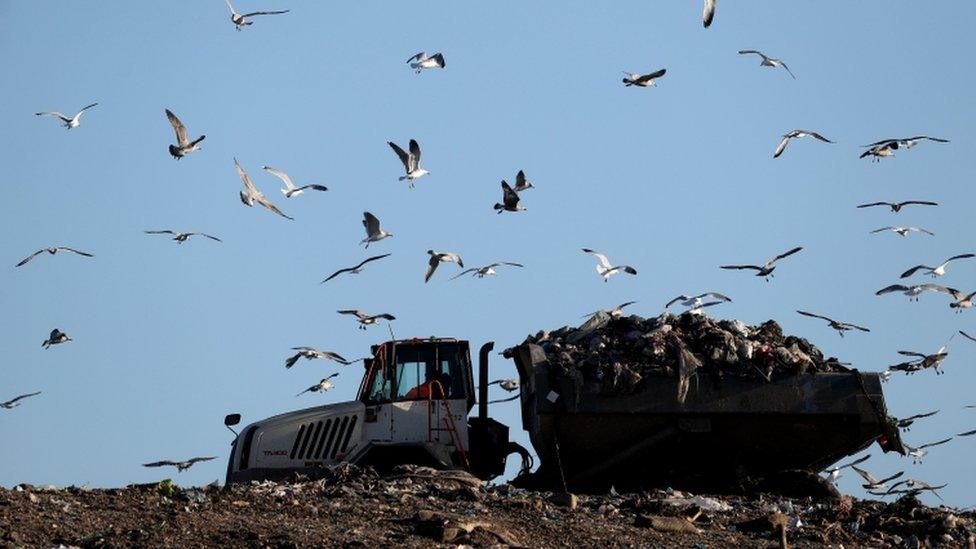
The Environment Agency says it will keep working with the operator of Walleys Quarry to further cut levels of hydrogen sulphide
Mathew, who lives in the village of Silverdale, near Walleys Quarry, was born prematurely with a chronic lung disease.
After the Court of Appeal's judgement, his mother said she felt "heartbroken".
The family's solicitor Rebekah Carrier said they hoped the Supreme Court would work fast "because the pollution in Silverdale continues".
A spokesperson for the EA said it remained determined to tackle issues at the quarry and would continue to work with the operator and other groups to bring hydrogen sulphide (H2S) emissions under control.
The site's operator Walleys Quarry Ltd said: "We continue fully to support the defence successfully brought by the Environment Agency in what we believe was a misplaced legal action brought by the family."
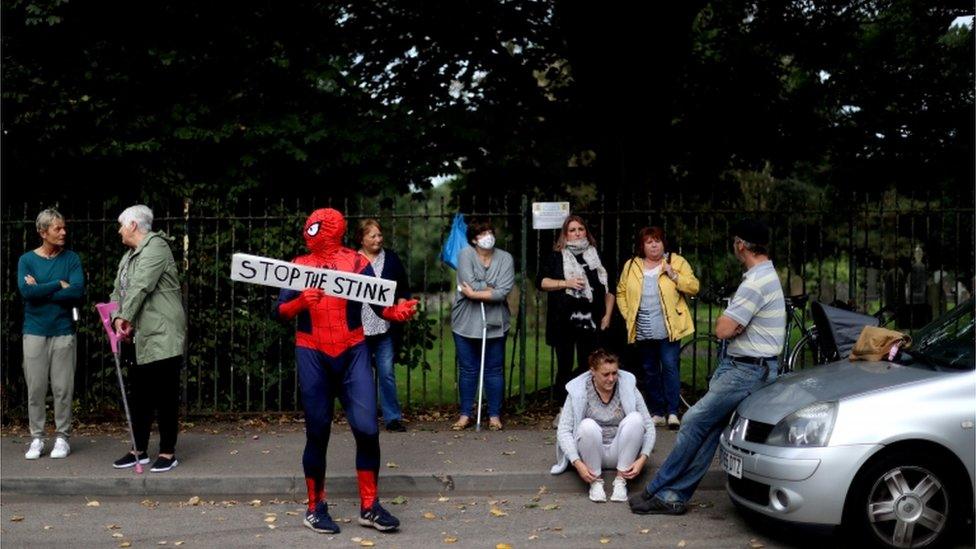
Protests have been held outside the landfill site by residents complaining about emissions from the quarry
The legal fight saw lawyers for Mathew win their case in the High Court in September 2021, when they argued the gases from the landfill site had worsened his underlying health issues.
They added H2S emissions were affecting hundreds and probably thousands of local people.
The court heard about 45,000 complaints had been lodged about the quarry over several months in 2021.
Mr Justice Fordham ruled the gases were having a direct impact on Mathew, said he was not satisfied the EA had complied with its legal duties and ordered them to ensure H2S levels were cut to a safe level by January 2022.
But the agency appealed, arguing the judge went too far in giving it a timeframe it had to follow and it had lowered emissions.
The Court of Appeal judges agreed and, in their written judgement, said the EA had not acted unlawfully in the work it had already carried out to cut H2S levels.

Follow BBC West Midlands on Facebook, external, Twitter, external and Instagram, external. Send your story ideas to: newsonline.westmidlands@bbc.co.uk, external
Related topics
- Published17 January 2022

- Published17 December 2021

- Published14 December 2021
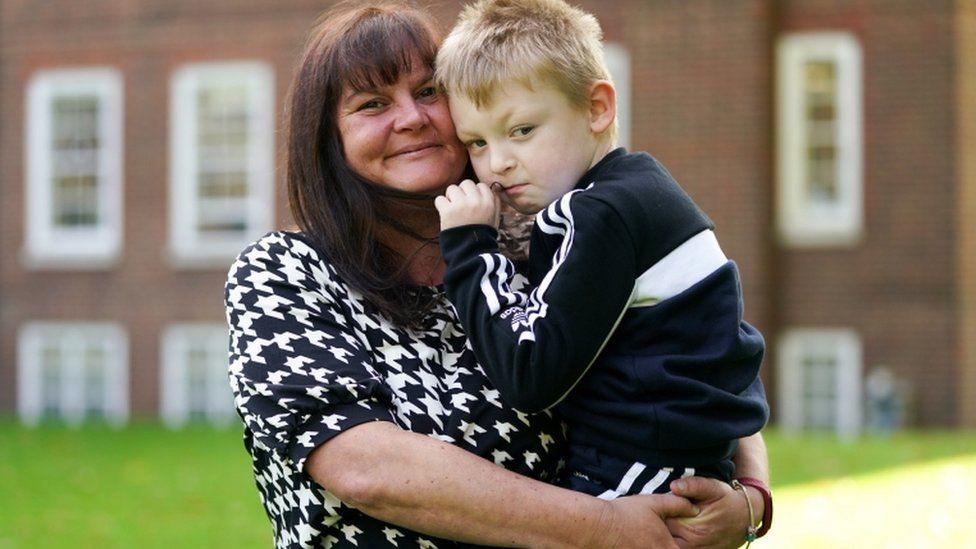
- Published15 October 2021
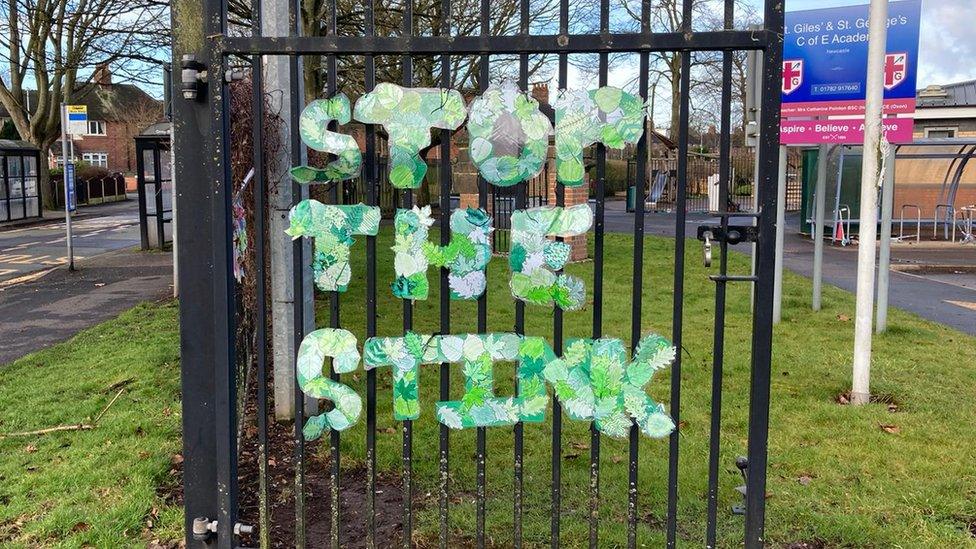
- Published5 October 2021
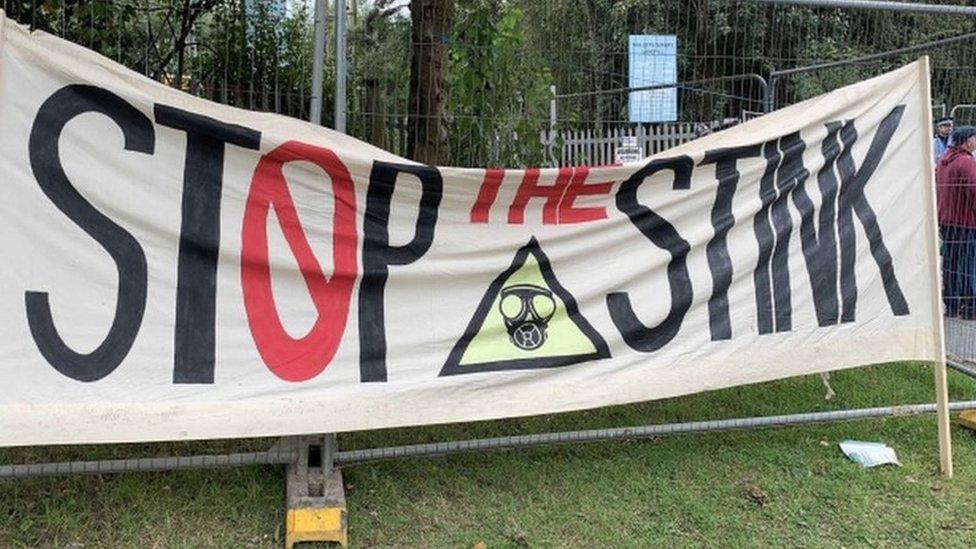
- Published16 September 2021
